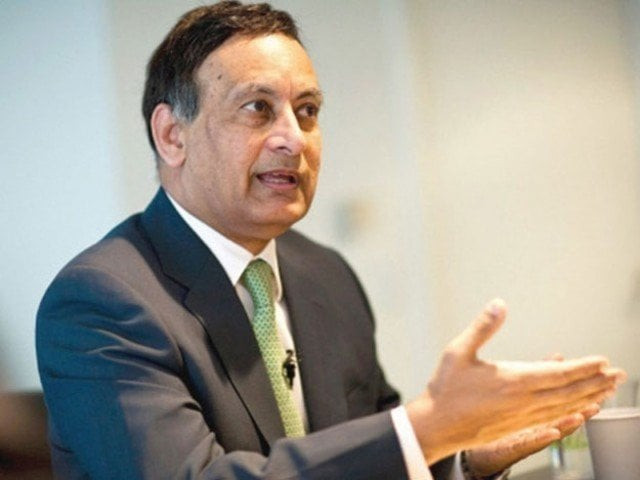SC wraps up Memogate case, says state free to pursue Haqqani
CJP Khosa asks if Pakistan's democracy and armed forces were so weak that they could collapse because of a memo

A file photo of former Pakistan ambassador to the US Husain Haqqani. PHOTO: EXPRESS
Hearing the suo motu case, the three-judge special bench led by Chief Justice Asif Saeed Khosa said the apex court had nothing to do with the matter but the state was free to pursue the case.
The chief justice also questioned whether Pakistan's democracy and armed forces were so fragile that they could collapse because of a memo. “Does the state still feel threatened? Thank God, Pakistan's foundations are strong and we need not worry about such matters,” CJP remarked.
SC orders govt to take necessary steps for Haqqani's repatriation
The bench noted that no one appeared in court on behalf of the petitioner, while there had also been no requests for an adjournment.
Haqqani was implicated in the Memogate case when he allegedly had a memo delivered to Admiral Mike Mullen through Mansoor Ijaz. The memo had offered greater government cooperation in return for US backing against the Pakistani military in the immediate aftermath of the May 2 raid which led to the killing of Osama bin Laden.
The case against him commenced in June 2013 when a nine-member SC bench, headed by the then chief justice Iftikhar Muhammad Chaudhry, directed the government to use all legal channels to bring Haqqani back to Pakistan.
The order came a year after the Memogate judicial commission held Haqqani as the author of the memo.
However, multiple attempts for his extradition were unsuccessful as the government could not convince Interpol to issue warrants for Haqqani’s arrest.
Memogate: Commission's report says Haqqani authored memo
The request for warrants was first rejected because there was no criminal charge against the former ambassador. A treason charge was then incorporated in the case against Haqqani, but the Interpol still refused to act since their was no provision in international law for extradition on treason charges.
Efforts for Haqqani's repatriation recommenced in March 2018, after a case of embezzlement of over $2 million was registered against him.
While the former diplomat had dismissed the reopening of the case as a ‘political gimmick’, the Supreme Court directed the government to take necessary steps for his repatriation.
Interpol was contacted again and, in May 2018, the law enforcement agency sought additional information to justify the issuance of a red notice against Haqqani.
A report submitted in court by then FIA Director General Bashir Memon stated that a request was sent to the Interpol Secretariat General (IPSG) on April 9 for the issuance of a red notice, after an FIR was registered against Haqqani for misappropriation and fraudulent withdrawal of $4,127,389 from the government fund from May 28, 2008, to November 23, 2011.
Husain Haqqani cannot be brought back on contempt charges, SC told
The embezzlement charges, though, were also not grounds for extradition through the Interpol. However, international law expert Ahmer Bilal Soofi, who was appointed amicus curiae for the case, had informed the apex court that the misappropriation offence could be pursued but the matter would have to be referred to the National Accountability Bureau (NAB) and Federal Investigation Agency (FIA), who would be empowered to bring Haqqani back under an existing Mutual Legal Assistance (MLA) agreement.
After failing to get former ambassador Haqqani through Interpol, the government has initiated the process of seeking his extradition from the United States through the Foreign Office on allegations of embezzlement.
The SC has now wrapped up the case a month after reports emanated that the government was planning to use the Foreign Office to secure Haqqani's extradition from the United States on embezzlement charges.



1724319076-0/Untitled-design-(5)1724319076-0-208x130.webp)















COMMENTS
Comments are moderated and generally will be posted if they are on-topic and not abusive.
For more information, please see our Comments FAQ